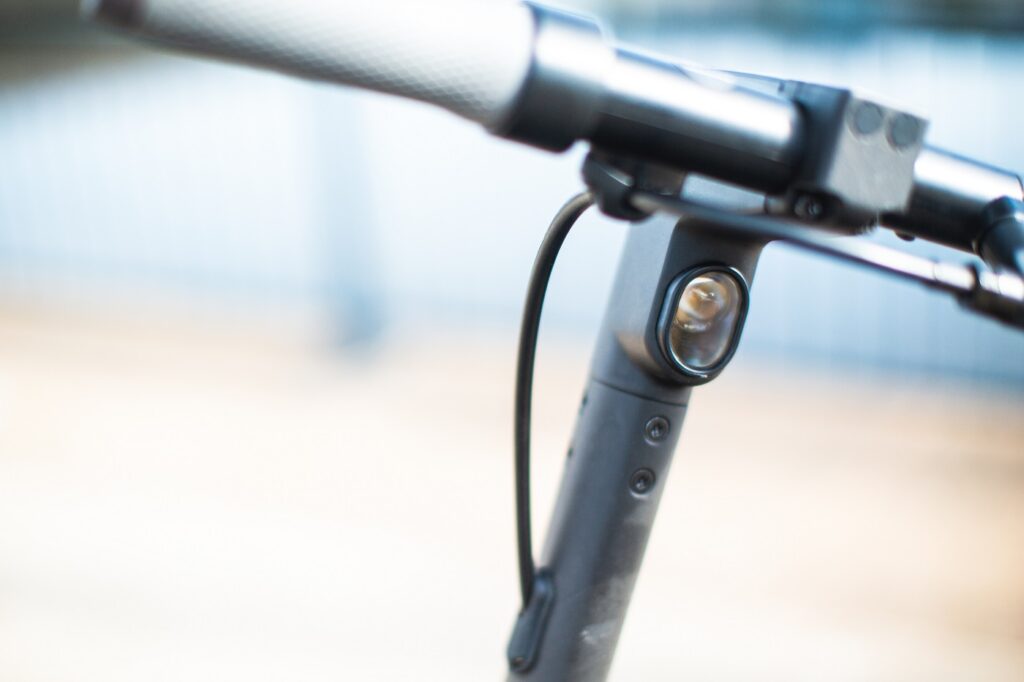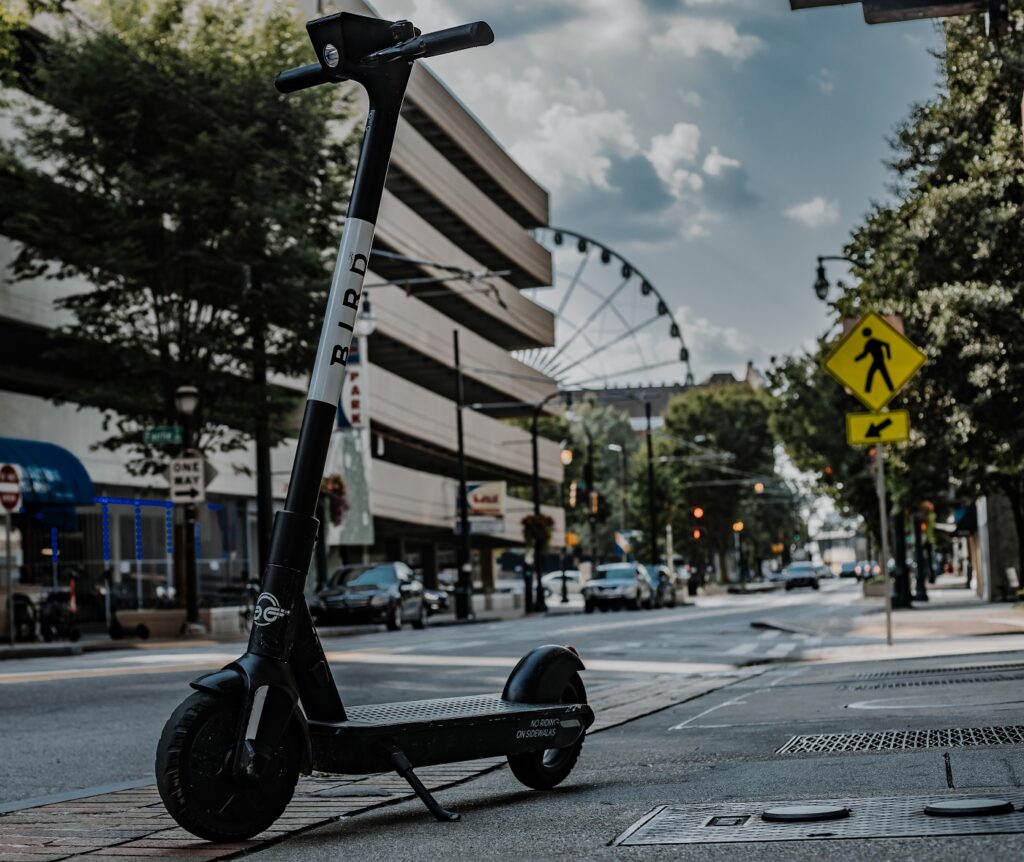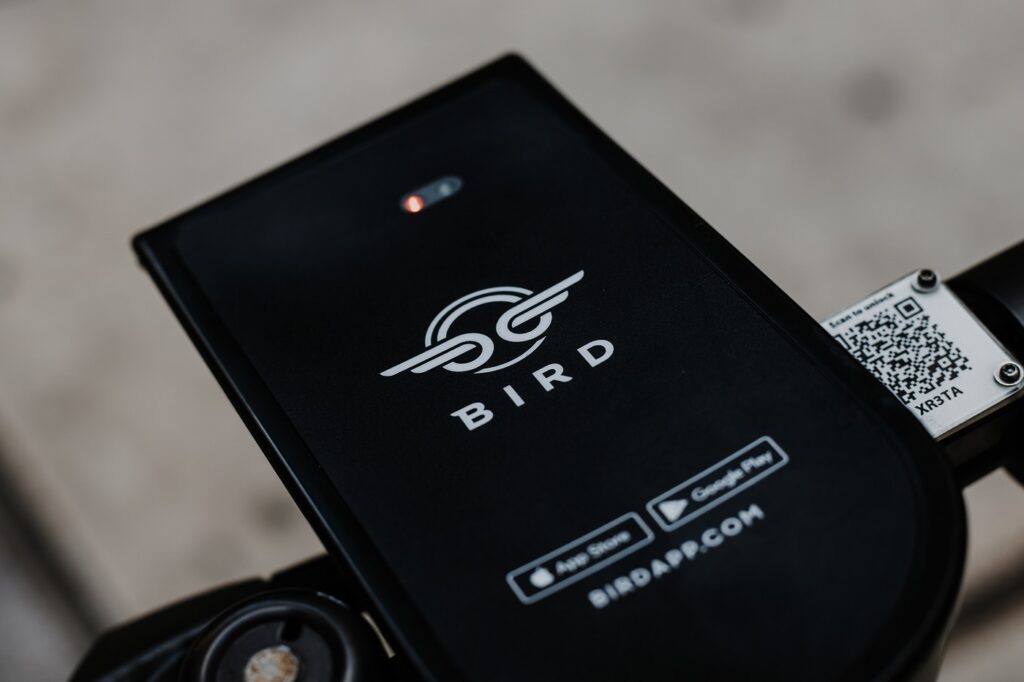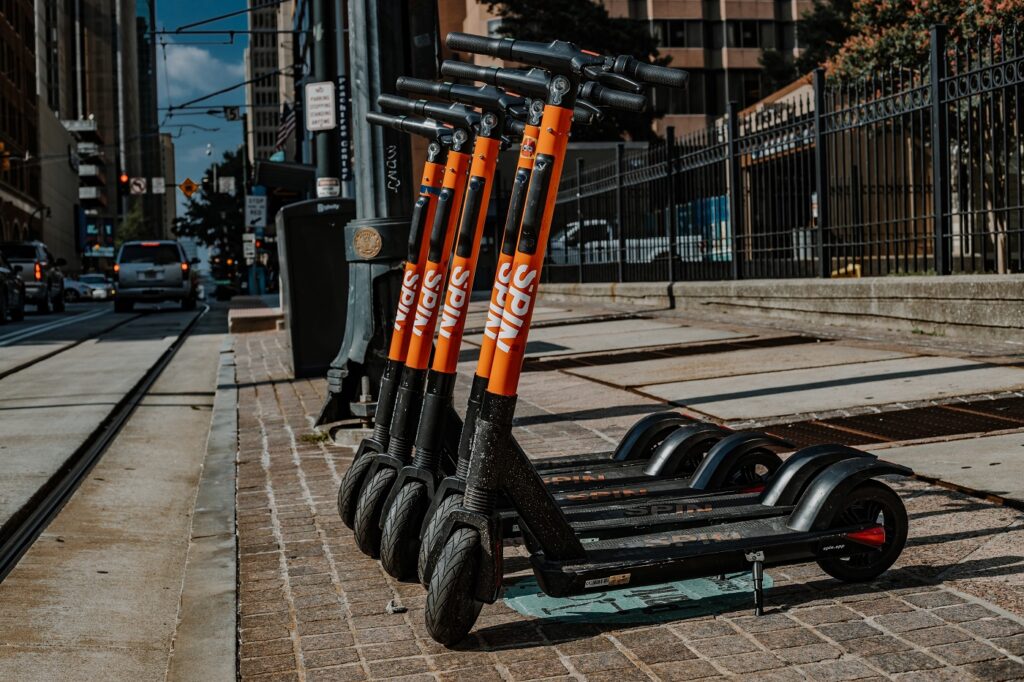Electric scooters. They’re not exactly hoverboards but they serve the same purpose: providing urban mobility with zero tailpipe emissions, able to manoeuvre through small spaces, and offering a viable option to replace car use. Oh, and they bring Michael J Fox-levels of cool. Unlike hoverboards, however, you don’t need a time machine to have a go on one – and you don’t even need to leave the country anymore.
Although shared e-scooters are a shiny new addition to the British streets, they’re already a huge phenomenon worldwide. Across the US and Europe, many large cities not only have scooters aplenty but also multiple e-scooter rental operators on the same patch. The UK has had bicycle and e-bike sharing schemes for some time but it’s taken a while for the trendy e-scooter to (legally) stick a pair of wheels onto our tarmac.

With all the headlines they’ve generated and the Grisham-esque litany of legal and financial twists and turns, it’s easy to forget that the shared e-scooters attempting to disrupt city transport patterns have only been around for three years. Get to grips with their story so far with this handy timeline.
(For reference, we are referring only to electric scooters on which you stand, rather than the heavier, motorbike-style sit-down vehicles.)
2016
Singapore, 2016. Four university graduates have a rather brilliant idea: rent dockless electric scooters to commuters, businesses and tourists. A local pilot project proves overwhelming in its success and Telepod is born.
The following year, in June, the Singaporean company will launch properly, with many now-familiar features already in place: smartphone operation, QR code unlocking, GPS tracking.
The operator has since been left behind, unable to match the financial firepower of other firms, but its place in the history books is assured.
Yes, that’s right. Electric scooter sharing may now seem like an American Dream narrative but the concept was born in Singapore.
2017
By June 2017, it’s another Singaporean company hitting the headlines – Neuron. With new tech that helps the government’s traffic planning, Neuron takes pole position in the race for global scooter domination. Before too long, the bright orange scooters would also reach Australia and New Zealand.
“The first time you land on the Moon, there’s nobody you ask for permission. You just have to do it!”
Patrick Studener, Bird
The Silicon Valley story starts in September 2017, when the first Bird e-scooters appear suddenly on the streets of Santa Monica. Within days, there are hundreds of scooters scattered throughout the Californian city.
Patrick Studener, Europe boss at Bird, puts it this way: “Well, that was our first city, you had to start somewhere, right? The first time you land on the Moon, there’s nobody you ask for permission. You just have to do it! For the first two or three cities, we just went there to see if people were excited about it and then we figured things out with the cities. After that, other cities already knew what scooters were so there we could have the conversation with them first.”
Arriving uninvited and unannounced does not go down well in all quarters, particularly with city officials, but the scooters quickly prove wildly popular with riders and corporate investors alike. Within a year, Bird is valued at USD $1bn.
“Our biggest lesson was that our customers ride the scooters every day, but our number one customer is the city,” Studener says.
The scooter revolution has begun in earnest.
2018
What a year this will prove to be for e-scooters.
Spin got going in July 2017 with bike-sharing in Seattle, USA. In February 2018, the operator adds distinctive orange-liveried e-scooters to its portfolio. Motoring behemoth Ford goes on to buy the business just nine months later, at a price tag close to USD $100m.
Lime also enters the e-scooter picture in February. Originally named LimeBike, the bike-sharing company was formed in January 2017 and counted North Carolina as the site of its first programme. By May 2018, the operator has a new name above the door and secures backing from Uber and Alphabet (Google). The following month, Lime-S e-scooters are launched in key markets across California, including Los Angeles, San Diego and San Francisco.
Ride-hailing service Lyft is not about to be left out and begins offering e-scooters in September, in Denver, USA. In Miami, investors have created another four-letter entity – Bolt – and are preparing for a 2019 entry.
European startups and investors have spotted the incoming US invasion and are determined to face it head-on. Berlin-based Flash starts putting anonymous scooters to work in Zurich and Lisbon. Another Berlin company, Tier, chooses Vienna as the site of its first programme and, in October, the firm secures €25m in investment.
Wind Mobility, yet another Berlin entity, begins offering e-scooters to residents of Berlin and Barcelona and secures around €60m of funding in its first year.
American-registered firm Helbiz also joins the party. Having secured USD $7m since being formed in New York in late 2015, it launches e-scooters onto the streets of Milan and Malaga in October 2018. By the middle of 2019, they would have pilot programmes running in many other Italian and Spanish cities.
Summer in Stockholm sees another new entrant roll out, this time with an even shorter name: Voi. Remember this name.
Estonian firm Taxify also joins in, setting scooters loose in Paris in September. Confusingly, the company also decides to call its new brand Bolt.
In December, investors pour €20m into the coffers of Amsterdam newcomer Dott in preparation for a 2019 launch.
And what of Bird, the firebrand? By the end of 2018, those black-and-white scooters are in 100 cities, have racked up ten million trips, and have catapulted the company to a USD $2bn valuation.
The company’s ethos has changed, too. Studener again: “We spent a lot of time talking to the city of Paris, where we launched 2nd August 2018, and with Tel Aviv, where we launched 14th August. Every launch of the almost fifty EMEA cities we’re in, we have had long conversations well ahead of time to make sure we understand the different needs of the cities. There were unique things, like dealing with cobblestones in Antwerp, or Tel Aviv asking for us to code digital parking spots into the app. It’s been give-and-take and a collaborative effort with the cities.”
2019
Entries to the market slow down as the market goes through a period of consolidation.
Flash finally falls pretty to the four-letter scourge and, in January, changes its name to Circ; the company also raises €55m. Dott raises another €30m. Scoot, an electric motorcycle sharing service with electric scooters, is acquired by Bird for less than USD $25m.
Bolt – the one in Florida with yellow scooters and the champion sprinter as ambassador – gets going in March in Fort Lauderdale and North Virginia.
BluE Scooters (sic) appears on the streets with e-scooters to hire in urban areas and on campuses in the summer. Based in London, the company rebrands as BlueZoom in November when its adds e-bikes. The following year, the company rebrands the rebrands. Now known as Zwings, the company is targeting B2B (business to business) and B2G (business to government) markets.
2020
And we’re back at the present and heading into the future faster than a flying DeLorean.
As entire countries shut down one-by-one this year, the infant shared e-scooter sector is nearly throttled. Salvation comes as lockdowns expire; populations are suddenly wary of the close proximity that public transport brings. Scooter rides surge.
The difficult economic environment does not leave micromobility companies unscarred. Circ, previously Flash, is bought by Bird. Bird then goes on to lay off 30% of its workforce in March as the lockdowns begin.
Then Uber offloads its Jump e-bikes, too. It had forked out USD $200m to acquire Jump back in 2018, and now needs to minimise its losses. It scraps thousands of older examples but the remaining e-bikes are scooped up by Lime in May 2020. This deal means Lime’s e-scooters would be available rent in Uber’s app, and similarly the remaining Jump bikes would become available via Lime’s app.
Also in May, Massachusetts tech firm Superpedestrian buys shared bike provider Zagster to create shared e-scooter service Link, which emerges in June. It doesn’t take the company long to secure permits in the US and in Rome, Italy.
And then, the Big One: the Department for Transport hits the red button and introduces country-wide scooter trials far earlier than had been expected. The doors are open. Come one, all.
Which companies are still alive and kicking – and which are most likely to be moving into the UK? The A-listers are all ready: Bird, Lime, Spin, Neuron, Tier, Dott and Voi (Lime, Spin, Voi and Tier have all already secured contracts at time of writing).
The smaller brands have a shot too, as newcomer Ginger has proved by blitzing three towns already. Beryl, the British bike share provider, will be soon adding e-scooters to its Norwich portfolio. Newcomer Link has put itself in the frame with a string of high-profile hires and a strong tech offering. Bolt makes its scooters in-house in Estonia rather than outsourcing to China, and hopes this control and agility will be enough to attract British local authorities.
The good news for Brits is that you don’t need to hit 88mph or build a flux capacitor to experience the future. It’s already here, in two-wheeled form.








